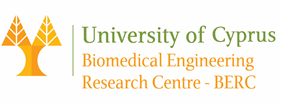 The existing and continuously developing high-throughput technologies produce a wealth of -omics data. This data, combined with related imaging and clinical records, comprises an ocean of information that requires sophisticated mathematical and computational analysis implemented into specialized computational hardware and software. The delivery of individually adapted medical care, based on patient measurements across various levels, is the basic idea of Personalized Medicine. This horizontal (population-based) and vertical (personal multi-level) approach drives data science to very demanding roadmaps in the so-called Big Data era making Bioinformatics a key player in the field. The major challenges faced by Bioinformatics towards Precision Medicine are: (i) the development of a robust information system capable for data integration, information extraction and knowledge sharing, (ii) the design and development of proper bioinformatics pipelines to provide valid and sufficient biological information from the high-throughput molecular profiles of the patient, (iii) the production of sophisticated mathematical models to predict the progression of the disease, its relation with the measured markers, its tolerance/resistance to various drug families and the existing risks to the patient. Bioinformatics is using state-of-the-art computational methodologies and techniques to rise to the occasion, such as computational intelligence, machine learning, pattern recognition and data mining, modeling and simulation, network reconstruction and visualization, complex network analysis, deep learning, text mining/semantics and association analysis. Further to these, Bioinformatics employ the most powerful computational ideas, setups and tools to create handy but powerful databases, number crunching systems and visualizers of networked heterogeneous information in order to provide the medical experts with a comprehensive picture of the worthiest of the measured information regarding each patient.
The existing and continuously developing high-throughput technologies produce a wealth of -omics data. This data, combined with related imaging and clinical records, comprises an ocean of information that requires sophisticated mathematical and computational analysis implemented into specialized computational hardware and software. The delivery of individually adapted medical care, based on patient measurements across various levels, is the basic idea of Personalized Medicine. This horizontal (population-based) and vertical (personal multi-level) approach drives data science to very demanding roadmaps in the so-called Big Data era making Bioinformatics a key player in the field. The major challenges faced by Bioinformatics towards Precision Medicine are: (i) the development of a robust information system capable for data integration, information extraction and knowledge sharing, (ii) the design and development of proper bioinformatics pipelines to provide valid and sufficient biological information from the high-throughput molecular profiles of the patient, (iii) the production of sophisticated mathematical models to predict the progression of the disease, its relation with the measured markers, its tolerance/resistance to various drug families and the existing risks to the patient. Bioinformatics is using state-of-the-art computational methodologies and techniques to rise to the occasion, such as computational intelligence, machine learning, pattern recognition and data mining, modeling and simulation, network reconstruction and visualization, complex network analysis, deep learning, text mining/semantics and association analysis. Further to these, Bioinformatics employ the most powerful computational ideas, setups and tools to create handy but powerful databases, number crunching systems and visualizers of networked heterogeneous information in order to provide the medical experts with a comprehensive picture of the worthiest of the measured information regarding each patient.
In the context of the proposed Centre, computational methods that will act as bridges between molecular biology, systems biology and molecular medicine, exploiting computational intelligence, high performance computing and network analysis will be developed. More specifically: (i) Build pipelines to analyse omics from various sources for profiling of the transcriptome (RNA-seq), the genome (DNA-seq, exome-seq), and the proteome (MS data), (ii) Create post-filtering methodologies to derive meaningful molecular signatures of the diseases, (iii) Develop computational methodologies for classification and clustering on molecular data to rank them based on their significance to the disease towards biomarker discovery, risk estimation and early prediction, (iv) Proceed to omics-driven Network Reconstruction using Network Inference methods as well as Probabilistic methods (Random Walks on Nets), (v) Perform Biological Network Analysis in terms of Quantitative Measures of Network Complexity, (vi) Perform re-ranking for the derived gene/protein lists (in a biomarker discovery pipeline) based on their systemic/network characteristics, (vii) Perform drug repurposing pipelines based on the expression profiles for each patient, (viii) Proceed with Chem-Bioinformatics concerning compound screening, fingerprint calculation and analysis, toxicity checks, to conclude with short listed compounds suitable to the profile of each patient, (ix) Develop systems for computer aided diagnosis that integrate molecular, imaging and clinical data towards risk estimation adapted to each patient profile, (x) Create handy and powerful Databases that will give dynamic feedback to new-comers case analyses through content-based retrieval approaches, (xi) Create user-friendly Bioinformatics Web Services to have medical doctors actually use the developed tools.It should be highlighted that open source tools and repositories will be fully exploited both to optimize on the resources available as well as to benchmark proposed technologies. These also include data from local clinical and genetics studies which exemplify variations particular to the genetically isolated population of Cyprus.
